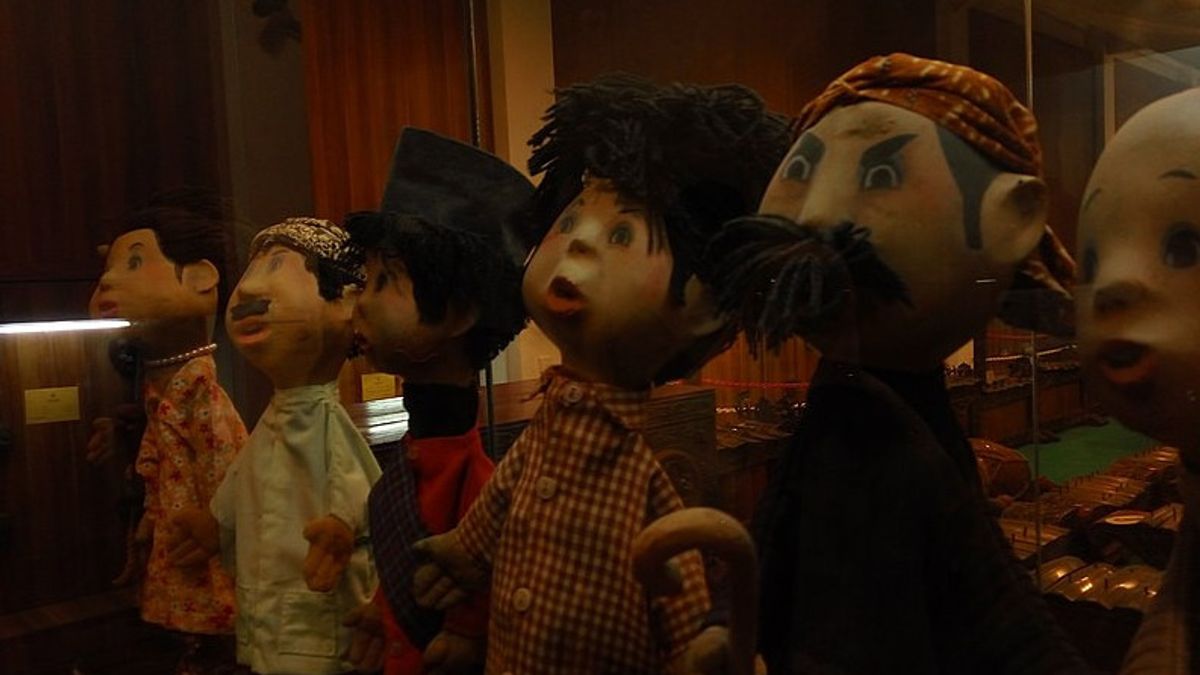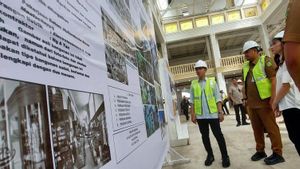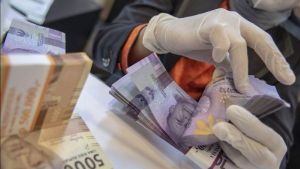JAKARTA - The high interest in the film doll series Si Unyil is not just an empty message. Instead of just being watched by small children, the story of Si Unyil is also awaited by adults. They khatam lives with all the characters of Si Unyil. Moreover, Pak Ogah.
The character of an unemployed plontos head is phenomenal. Every day, he stays at the patrol post without wanting to work hard and is fond of asking for money: cheap first. In fact, Pak Ogah's character is often associated with a cepek police phenomenon. Both are considered to have properties that are no different.
Si Unyil is the most famous national cultural project for the Indonesian government. The legendary doll series is able to become an important agent for socializing the values of Pancasila. Mainly regarding diversity.
All of this was cleverly inserted by the National Film Production Center (PPFN) in every character of Si Unyil's story. As a result, many people agree with the story of Si Unyil which first aired on April 5, 1981, as a miniature symbol of Indonesia. From ethnic groups to different religions.
However, that is only one formulation that Si Unyil can be popular. Another formulation is openness. Si Unyil clearly shows some of the characteristics of Indonesians who are far from good. All of that attitude was bought up in Pak Ogah's form.
Pak Ogah's character is designed by a country resident who lacks education and lives lazy. The only thing to think about is how to get money in an easy way. Alias without working hard. He is willing to help people as long as there is a doku: cheap first.
The show of a child's doll on television in the 1980s featured a character called Pak Ogah. The series has the background of a village in Jakarta. Home address for Betawi people. Which, Betawi is a combination of various ethnic groups from all over Indonesia, with lineages from China, the Middle East and former Dutch power. In the show, Pak Ogah had the same answer when asking for help: ogah, ah!
Karakter seperti Pak Ogah memainkan karakter sebagai yang tidak terlalu dan hanya ingin mendapatkan uang dengan mudah penonton diperiksa dengan aksi Pak Ogah. Dalam pertunjuan, Pak Ogah kadang setuju untuk membantu, tapi meminta wambalan cepek dulu, ungkap Oleh Christopher rasudia dalam bukuIndonesian Idioms and Expressions(2007).
Pak Ogah's character became phenomenal along with the success of the Si Unyil series. After all, Si Unyil has been on the small screen with hundreds of episodes. Pak Ogah's name was also famous, including the voice filler of Pak Ogah's doll, Abdul Hamid. He also attended the sustenance.
The popularity of Pak Ogah's character makes urban people often associate it with the phenomenon of the Cepek Police. The image was given because the actions of the Cepek Police looked like Pak Ogah. The Cepek police are ordinary people who are unemployed - who helped smooth road traffic from the 1980s.
They usually operate in places prone to congestion. From intersections to turnarounds. Anyone who works as a Cepek Police is a job that is actually the informal sector will be called Pak Ogah.
This is because the Cepek Police hope that what they do will get wages from motorists. Cepek first, he thought. This behavior made the general public believe that the Cepek Police would resemble Pak Ogah's figure in the Si Unyil series.
Even though Pak Ogah from Si Unyil did not act to regulate the streets because the background of the rural-themed Si Unyil series, which in fact was empty of motorized vehicles. The nickname of the Cepek Police as Pak Ogah is timeless. In fact, work as Pak Ogah still exists today, along with the growth of motorized vehicle users.
The existence of the Cepek Police is still reaping pros and cons in society. Legally, the term the existence of the Cepek Police or Pak Ogah does not have a legal basis. There is not a single word Pak Ogah in the Law (UU) which becomes a reference for legitimizing Pak Ogah's existence, it's just that it is used by the word Police Assistance (Banpol), whose approach is more to the function of the police as part of the implementation of Law No.22 of 2009 concerning road traffic and transportation.
Police Assistance (Banpol) is not even found in the law, but Police Assistance is only an effort to involve the community as a form of self-isolation in law enforcement. When reviewed socially, some people need the Cepek Police because they are considered to help road users in dealing with congestion or for road users who want to turn around, turn around and also cross the road," explained Raden Prima Aziz Buntoro and Puji Lestari in the journal E-Societas nicknamed the Cepek Police in the Special Region of Yogyakarta (2020).
The English, Chinese, Japanese, Arabic, and French versions are automatically generated by the AI. So there may still be inaccuracies in translating, please always see Indonesian as our main language. (system supported by DigitalSiber.id)








